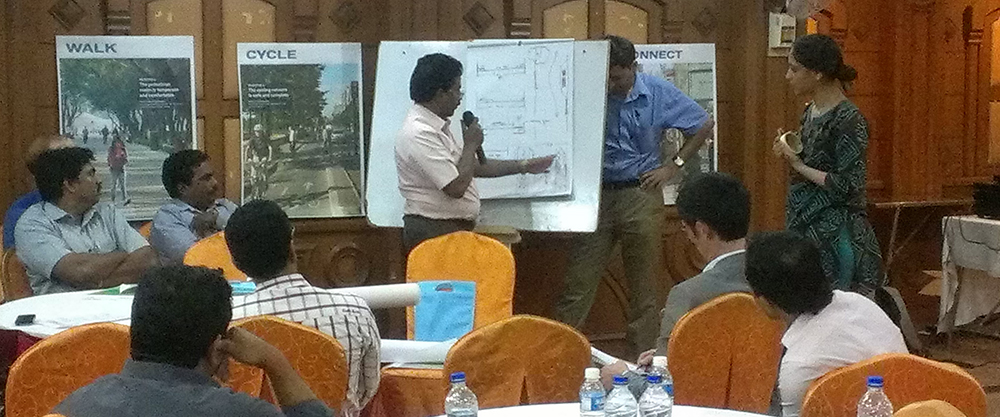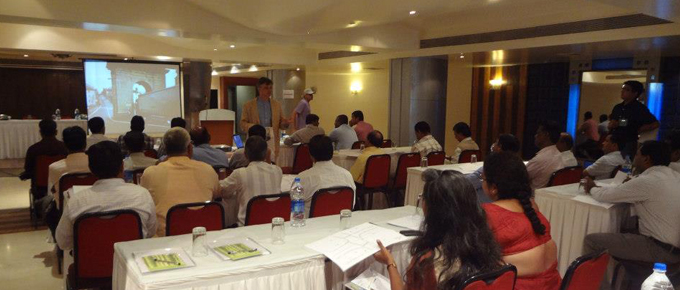“Cities are for people,” said Mr. Phanindra Reddy, a Municipal Secretary of the Chennai Metro Rail (CMRL) in the state of Tamil Nadu, India, “this is the mantra we have to keep in mind when we do our work.” This sentiment was echoed by keynote speaker, city planner and educator Peter J. Park, and Senior Town Planner Neela Munshi of the Ahmedabad Urban Development Authority, at ITDP’s Our Cities Ourselves workshop in Chennai, India.
The workshop, “Enabling Transit-oriented Development”, focused on station area planning around the Koyembedu metro station, set to be the first to open when Chennai metro rail begins operation within the next three years. Peter Park opened the workshop with an overview of international best practices in TOD, and discussion of his work as a city planner for the cities of Denver and Milwaukee. This included increasing neighborhood density, creating more infrastructure for cyclists and pedestrians, and reforming land use codes to allow for less parking and more walkable, accessible places around transit. One project that piqued quite a bit of interest was Park’s removal of a flyover in Milkaukee, and his demonstration and encouragement of highway removal in other cities around the world. This was of significant interest in Chennai, as flyovers are a common sight, and building more of them is often considered inevitable.



Ms. Neela Munshi gave an engaging presentation on the planned transformation of Ahmedabad, which boasts India’s most high quality bus rapid transit system – Janmarg. New land use regulations allow for greater density in the city’s central business district, new affordable housing provisions and reduced parking requirements. Ahmedabad abolished lot coverage requirments to enhance the public realm by bringing buildings closer to property lines. The city now also grants density bonuses to developers who wish to build more density around transit, which will help pay for streetscape improvements.
Mr. Kumar Rajaraman, Managing Director of Chennai Metro Rail, noted that the visions produced as part of Our Cities Ourselves showing new footpaths and dedicated bus lanes is the kind of forward-looking planning that is missing in Chennai. “People need to imagine what the future of Chennai can be, and work to make it better,” said Mr. Rajaraman.
OCO Chennai is a workshop series and exhibition supported by ClimateWorks Foundation and Volvo Research and Educational Foundations, that offers solutions to support walking, cycling, and mass transport options for a more sustainable future.









